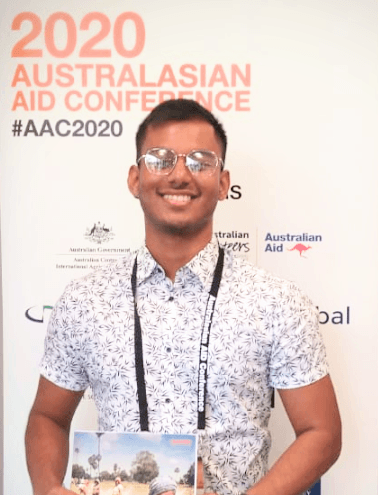WH&Y authors: Jahin Tanvir
Photo by Ketut Subiyanto from Pexels
A week ago, my younger brother came into my room and told me about an instance in his school where his friend was being called names by peers in his grade. He was of Asian descent and as a result, he was being referred to as ‘coronavirus’. As disgusting as this event is, it is by no means an isolated incident. Prior to COVID-19, a study by researchers at the Australian National University found that 40% of students in Years five to nine reported experiencing a degree of racial discrimination by their peers. They were of non-Anglo or non-European background. This finding was exacerbated when one in three students from the same group reported experiences of racial discrimination in wider society. Since the rise of COVID-19 swept across the globe, there has been a substantial spike in the incidence of racism, with emphasis on Asian descendants. The impacts of this are detrimental not only to their wellbeing at present but also to their long-term health, as young people move towards adulthood.

The WHO has identified that discrimination is a key determinant of health. This means that people who experience discrimination are more likely to have poorer emotional and mental health, higher chances of injuries and non-communicable diseases whilst also being less likely to seek care when they need it.
Experiencing discrimination and trauma during the Teenage Decade can have deep psychological and emotional health impacts that last well into adulthood. Feelings of helplessness and shame can diminish teenagers’ feelings of self-worth and lead to anxiety and chronic mental illness.
When I asked my brother what his friend was going to do about what happened, his reply was that “my friend doesn’t know what to do”.
While political leadership and community advocacy is a vital component in denouncing racism in all forms, health services need to also come into play. These services are there to support the needs of young people who have been on the receiving end of acts of discrimination. When a teenager encounters a racially motivated incident and reaches out for help, accessible services need to be available and at an arm’s reach. With Australia possessing an array of support organisations ranging from mental health organisations such as Headspace, ReachOut to anti-bullying resources at Kids Helpline, Bullying, No way! there needs to be a greater awareness of their availability. Even though Australia’s 2019-2020 GDP on healthcare has increased to be $81.8 billion, representing 16.3 per cent of the Australian Government’s total expenditure from the 10.3 per cent in 2015-2016, there still needs to be a stronger push in tangible facilities and programs that highlight the benefits of this rise in allocation. General practitioners and allied health services are also a focal point of discussion when it comes to achieving equitable and accessible health services for young people, particularly clinical psychologists, occupational therapists and social workers who are trained to help tackle the surge in mental illnesses.
If we listen, we will hear that young people have things to say. Yet too often we do not listen to young people, even in Australia. At Wellbeing Health & Youth, the Commissioners play a pivotal role in ensuring young people’s needs are heard when it comes to bettering health services. As young people, we understand the fear and uncertainty in accessing certain areas of health due to peer pressure, prevailing stigmas, and other contextual factors.
We don’t want young people to feel that way at all. Health services and the expert advice in place are there for young people to use, not fear. No matter what their situation is, we need young people to know that their concerns will be heard as soon as they seek help.
COVID-19 has highlighted discrimination that takes place in school environments. We believe health services can do more to prevent it on a broader scale. This can be done by fostering a culture of challenging racism head on with support services that are easy for young people to access. Education is another pivotal resource. Holding regular health literacy seminars and workshops for rural and marginalized communities, especially groups that have reported being racialized will equip them with strategies to deal with discrimination. We can also promote young people’s concerns and collate them in state and local policy conversations. This will provide them with a platform to voice positive changes into the system that are there to help them.
It is no secret that there exists an inextricable connection between discrimination and the deterioration of an individual’s health and wellbeing. During the COVID-19 period, we have seen a rise in discrimination targeted at minority groups. The healthcare services present a great opportunity to hear the experiences of young people. When we incorporate the insights of those who are affected, we can better tailor services that better meet their needs and demands.
“The right to be consulted and to be taken seriously on matters affecting a child”. That is an extract from Article 12 of the UN Convention on the Rights of Children. If we empower young people to utilise services that they need, they can have their concerns eased. As a first-generation South-Asian migrant, I know from my own experiences how it feels not to be able to engage with the world around. On the flipside, I also know what it is like having accessible support systems in place when faced with situations not in your control. Let us set a high standard so no young person ever has to feel hopeless again. Let us also make the effort so that the reason for their hopelessness does not exist in the first place.
About The Authors
Jahin Tanvir
Hey there! I’m Jahin and I’m currently undertaking an accelerated Bachelor of Vision Science/Master ...









